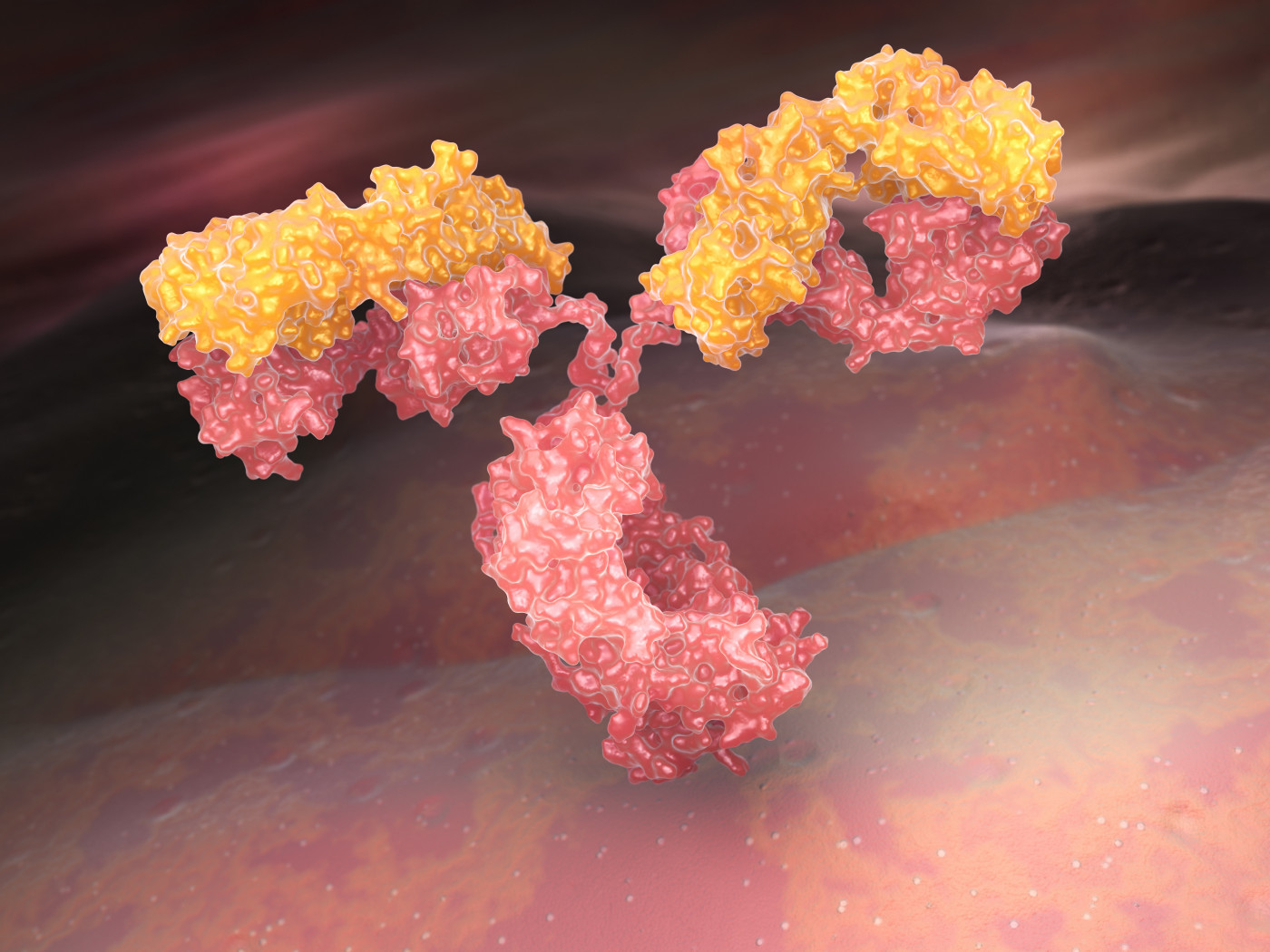Argenx’s ARGX-113 Shows Promise for Reducing Autoantibodies in MG Patients, Study Shows
Written by |

A Phase 1 study in healthy volunteers shows that argenx’s efgartigimod (ARGX-113) holds potential as a safe and effective therapy to reduce autoimmune disease-associated antibodies in many disorders, including myasthenia gravis.
Findings from the study, “Neonatal Fc receptor antagonist efgartigimod safely and sustainably reduces IgGs in humans,” were published in the Journal of Clinical Investigation.
Autoimmune diseases develop because of the immune system’s failure to discriminate between the body’s own tissue and pathogens. The immune system attacks normal cells, causing tissue damage.
For many autoimmune diseases, including myasthenia gravis, autoantibodies, or self-antibodies, play a central role. Researchers have attempted to reduce autoantibody levels as a therapeutic approach. This has yielded satisfactory clinical responses, but it is costly and there is a risk of side effects.
Efgartigimod is an investigational therapy for treating IgG (immunoglobulin G antibody)-mediated autoimmune diseases.
Efgartigimod is actually a component of a normal antibody that has been manipulated through argenx’s proprietary technology (trademarked as Abdeg) to increase its attraction to a receptor in cells called FcRn.
FcRn helps produce more antibodies. By binding FcRn and keeping it occupied, efgartigimod essentially blocks antibody production and helps decrease autoimmune disease-causing IgG autoantibodies.
Researchers at argenx conducted a randomized, placebo-controlled Phase 1 (NCT03457649) trial to determine efgartigimod’s safety, tolerability, properties, and immunogenicity (ability to provoke an immune response)
The parameters were compared to those in cynomolgus monkeys, a species whose FcRn-binding properties are similar to that of humans.
Researchers also wanted to determine the single and multiple ascending intravenous doses of ARGX-113 for additional Phase 2 trials.
Results indicate that treatment with efgartigimod led to a rapid clearance of IgG levels in both cynomolgus monkeys and the volunteers.
A single dose of ARGX-113 in a volunteer led to a decrease in IgG levels of up to 50%, while multiple doses further lowered IgGs by an average of 75%, with IgG levels returning to normal approximately eight weeks after the last dose.
ARGX-113 did not alter the balance of other vital antibodies. There were no serious adverse events related to efgartigimod infusion.
Authors of the study concluded that “using efgartigimod is safe and results in a specific, profound, and sustained reduction of serum [blood] IgG levels. These results warrant further evaluation of this therapeutic approach in IgG-driven autoimmune diseases.”
Nicolas Leupin, chief medical officer of argenx, said in a press release, “The Phase 1 data published … in the peer-reviewed Journal of Clinical Investigation highlight the unique design of efgartigimod as an Fc fragment modified by our proprietary ABDEG technology.
“The drug candidate’s binding properties with FcRn are enhanced by the ABDEG mutation, which may contribute to the differentiated pharmacokinetic and pharmacodynamic activity we saw in the Phase 1 study, as well as its favorable tolerability profile,” he added.
Results from this study were supported in a current Phase 2 proof-of-concept trial conducted in patients with myasthenia gravis (NCT02965573) and another Phase 2 trial in patients with pemphigus vulgaris (PV) (NCT03334058).
Findings from these trials demonstrated that the intravenous formulation of efgartigimod is well-tolerated and effective in the reduction of IgG levels. Furthermore, the decrease in IgG levels seen in patients with MG is associated with meaningful and statistically significant improvements in clinical disease scores.
Argenx expects the full dataset from the Phase 2 proof-of-concept trial in PV in the first half of next year. A Phase 3 trial in MG is also expected to start before the end of this year.






Leave a comment
Fill in the required fields to post. Your email address will not be published.